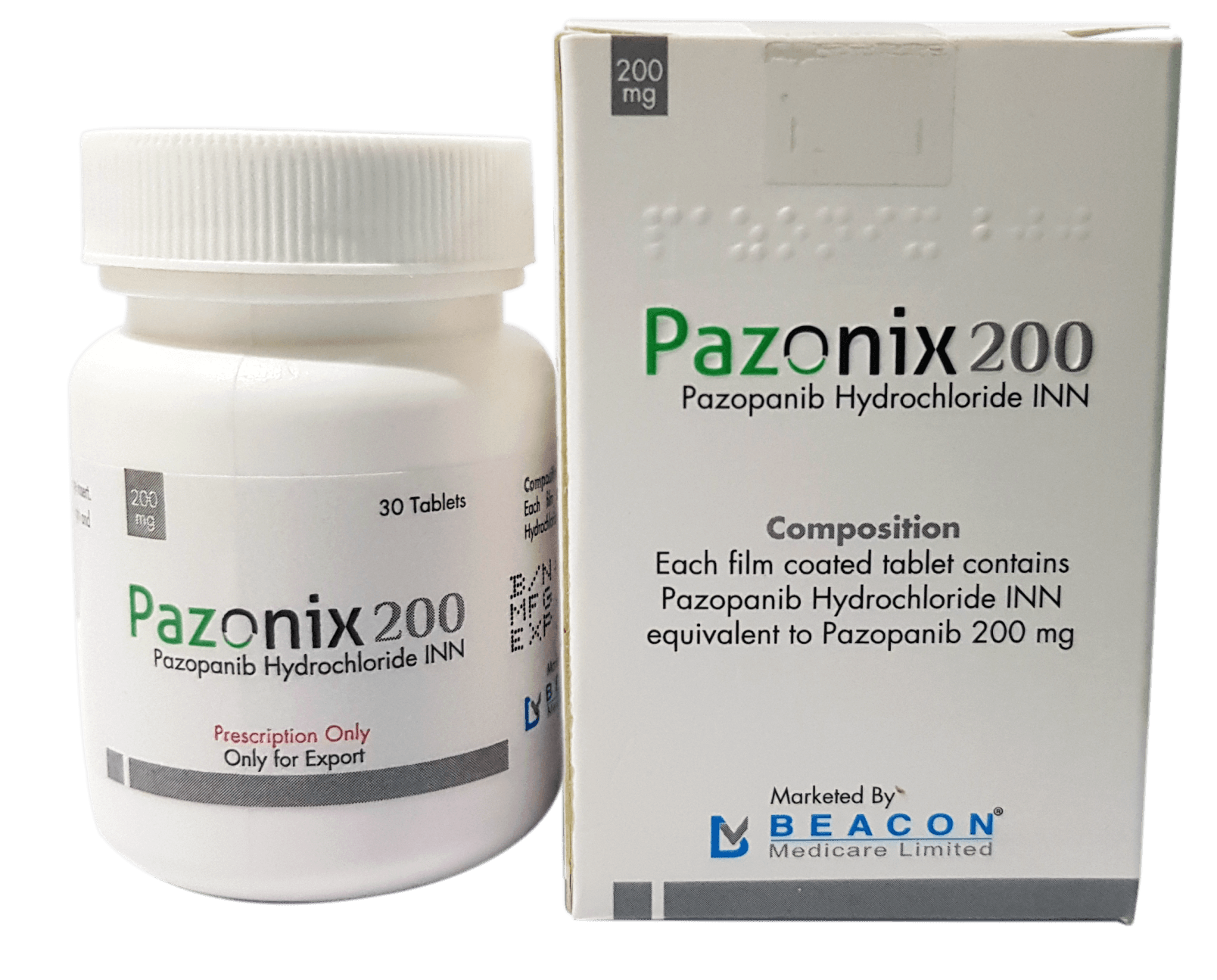

Soft tissue sarcoma is a rare type of cancer that begins in the tissues that connect, support and surround other body structures. This includes muscle, fat, blood vessels, nerves, tendons and the lining of your joints. Approximately 40% of patients with STS are age 65 years or old.
Doxorubicin is a standard care in patients with advanced, inoperable soft tissue sarcoma (STS). Treatment with doxorubicin is associated with chemotherapy-associated adverse events (AEs) such as neutropenia and febrile neutropenia.
Pazopanib is a tyrosine kinase inhibitor that targets the vascular endothelial growth factor receptor (VEGFR), is associated with limited hematologic toxicity. In recent clinical study, pazopanib showed noninferior efficacy compared with doxorubicin and there was superiority in terms of neutropenia and febrile neutropenia in elderly patients with STS.

The recommended starting dose of Pazopanib is 800 mg orally once daily without food (at least 1 hour before or 2 hours after a meal). The dose of Pazopanib should not exceed 800 mg.
Do not crush tablets due to the potential for increased rate of absorption which may affect systemic exposure.
If a dose is missed, it should not be taken if it is less than 12 hours until the next dose.
Potentially serious adverse reactions with Pazopanib included:
Pazopanib doses up to 2,000 mg have been evaluated in clinical trials. Dose-limiting toxicity (Grade 3 fatigue) and Grade 3 hypertension were each observed in 1 of 3 patients dosed at 2,000 mg daily and 1,000 mg daily, respectively.
Treatment of overdose with Pazopanib should consist of general supportive measures. There is no specific antidote for overdosage of Pazopanib. Hemodialysis is not expected to enhance the elimination of Pazopanib because pazopanib is not significantly renally excreted and is highly bound to plasma proteins.